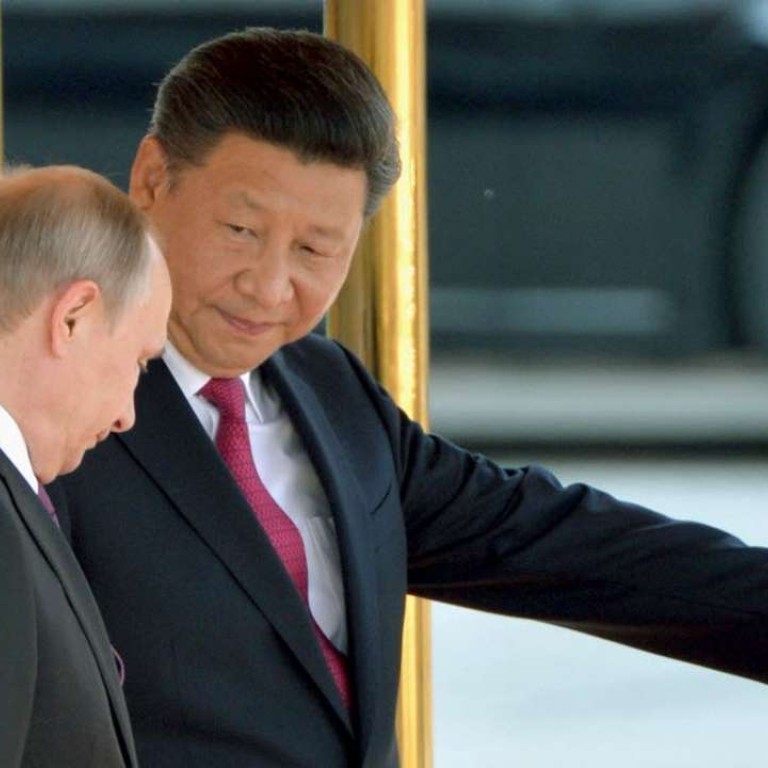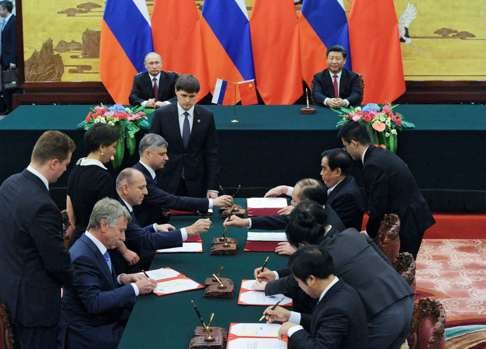
China’s Xi Jinping and Russia’s Vladimir Putin slam US missile shields
China and Russia criticised the United States and its allies for “unilateral deployment of anti-missile systems all over the world” and vowed a joint effort to strengthen global strategic stability.
The two countries issued several joint statements, ranging from international laws to cybersecurity, on Saturday, following Russian President Vladimir Putin’s state visit to China.
Both sides voiced concern over increasing “negative factors” affecting global stability. “Some countries and military-political alliances seek decisive advantages in military ... technology, so as to serve their own interests through use of or threatening the use of force in international affairs,” President Xi Jinping and Putin said in a joint statement.
They said this had resulted in a build up of military power that was out of control and had shaken global stability.
They called on countries to refrain from moves that might be seen by other states as threats to their national security and force them to take countermeasures such as military buildups, or establishing and expanding military-political alliances, to restore the balance. They also called on nations to strictly abide by the norms of international law.
They criticised the deployment of anti-missile systems in Europe and Asia as being done under false pretences.
They specifically opposed the deployment of the Aegis Ashore ballistic missile defence system in Europe and the possible deployment of the Terminal High Altitude Area Defence (THAAD) in northeast Asia, which they said severely infringed upon the strategic security interests of countries in the region.
“[The deployment of anti-missile systems] is non-constructive and has negatively affected the global and regional strategic balance, stability and security,” Xinhua cited the statement as saying.
The US claims THAAD is intended only to target and intercept North Korea missiles.
Yue Gang, a retired colonel, said the statements signalled the countries’ ambition in boosting their positions in the world order. “China used to play the supporting role in cooperation with the US… It is now joining hands with Russia in playing a more important role in global governance,” he said.
Putin’s visit has brought more than 30 trade deals in areas such as energy, infrastructure, technology and innovation.
The deals involve the sale of stakes in Russian projects to Chinese firms, an oil supply contract and joint investments in petrochemical projects in Russia.
Rosneft, Russia’s top oil producer, agreed with China National Chemical Corporation that ChemChina would take a 40 per cent stake in Rosneft’s planned petrochemical complex VNHK in the far east of Russia.
Ian Ivory, a China-Russia observer, said the nature of the two countries’ trade ties was largely politically driven.
“For China this means a continued projection of its soft-power and influence into Russia and Central Asia, in alignment with its overall [One Belt, One Road] strategy,” he said. “For Russia, this means badly needed investment and cross-border trading activity to alleviate some of the pain felt from Western sanctions and the sharp drop in the oil price.”
Additional reporting by Reuters


